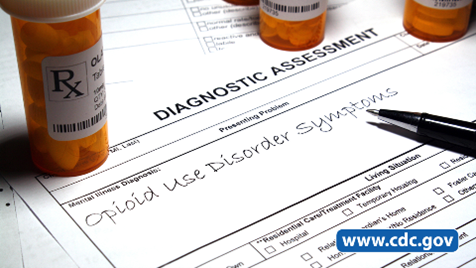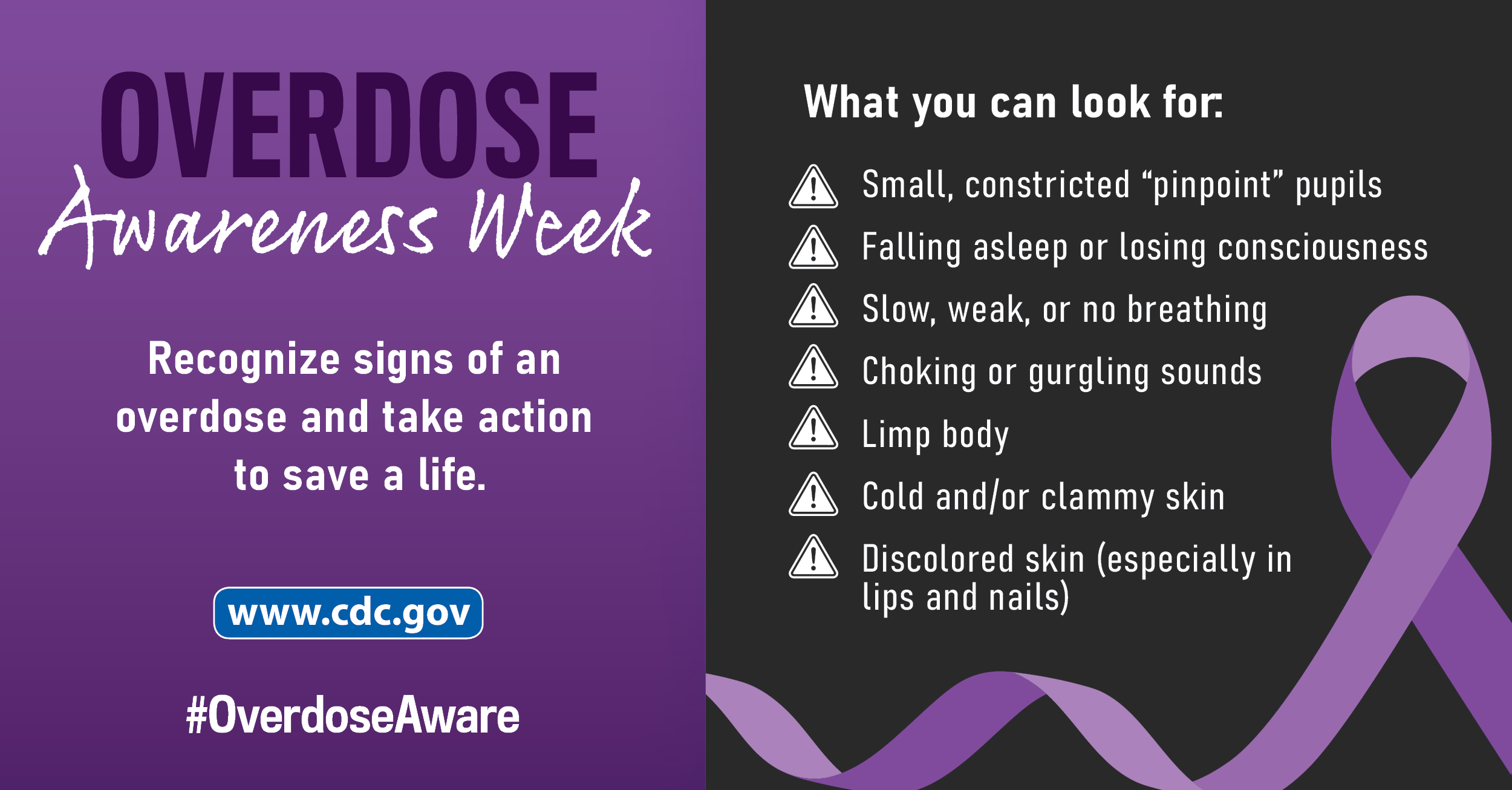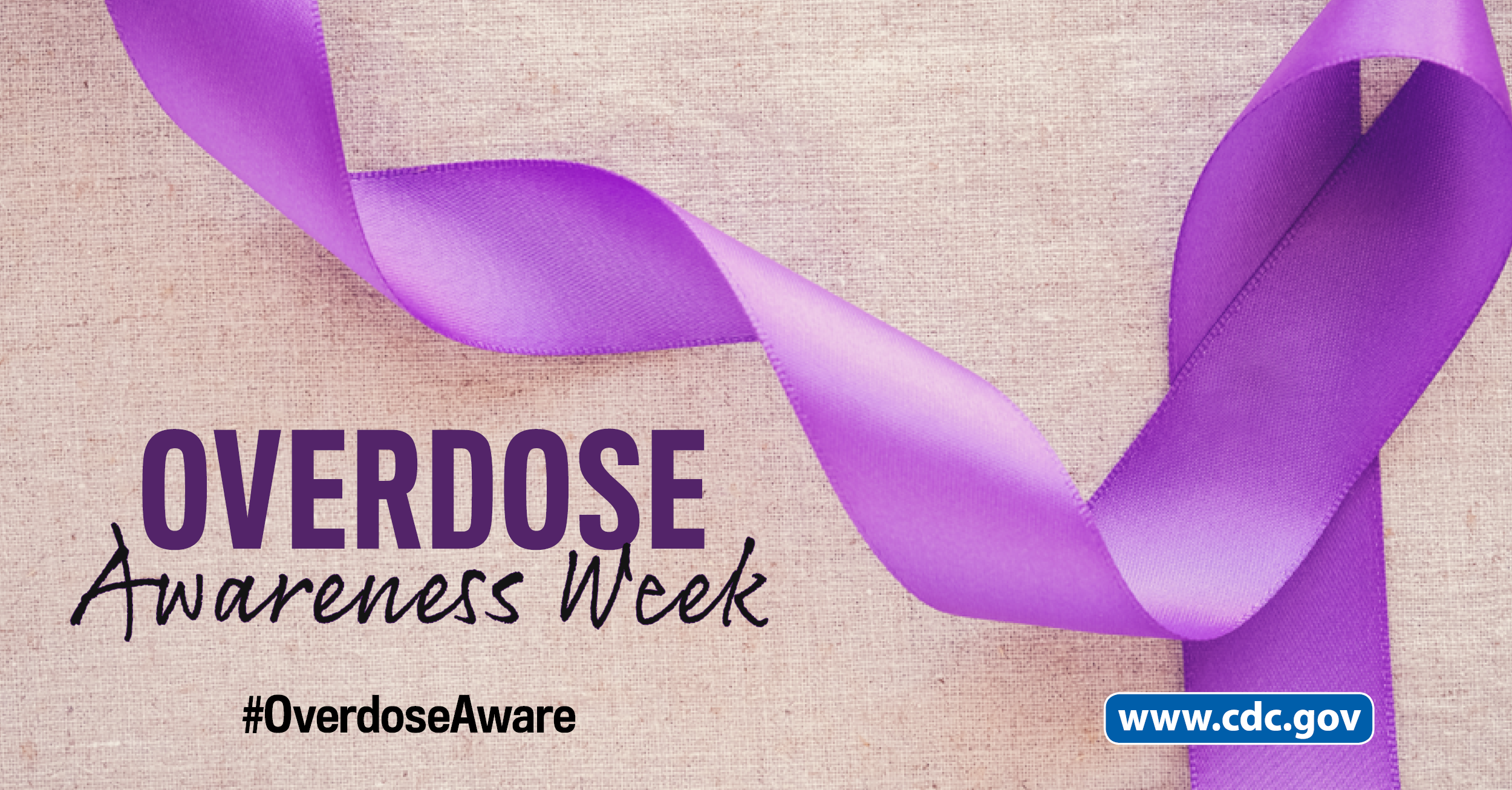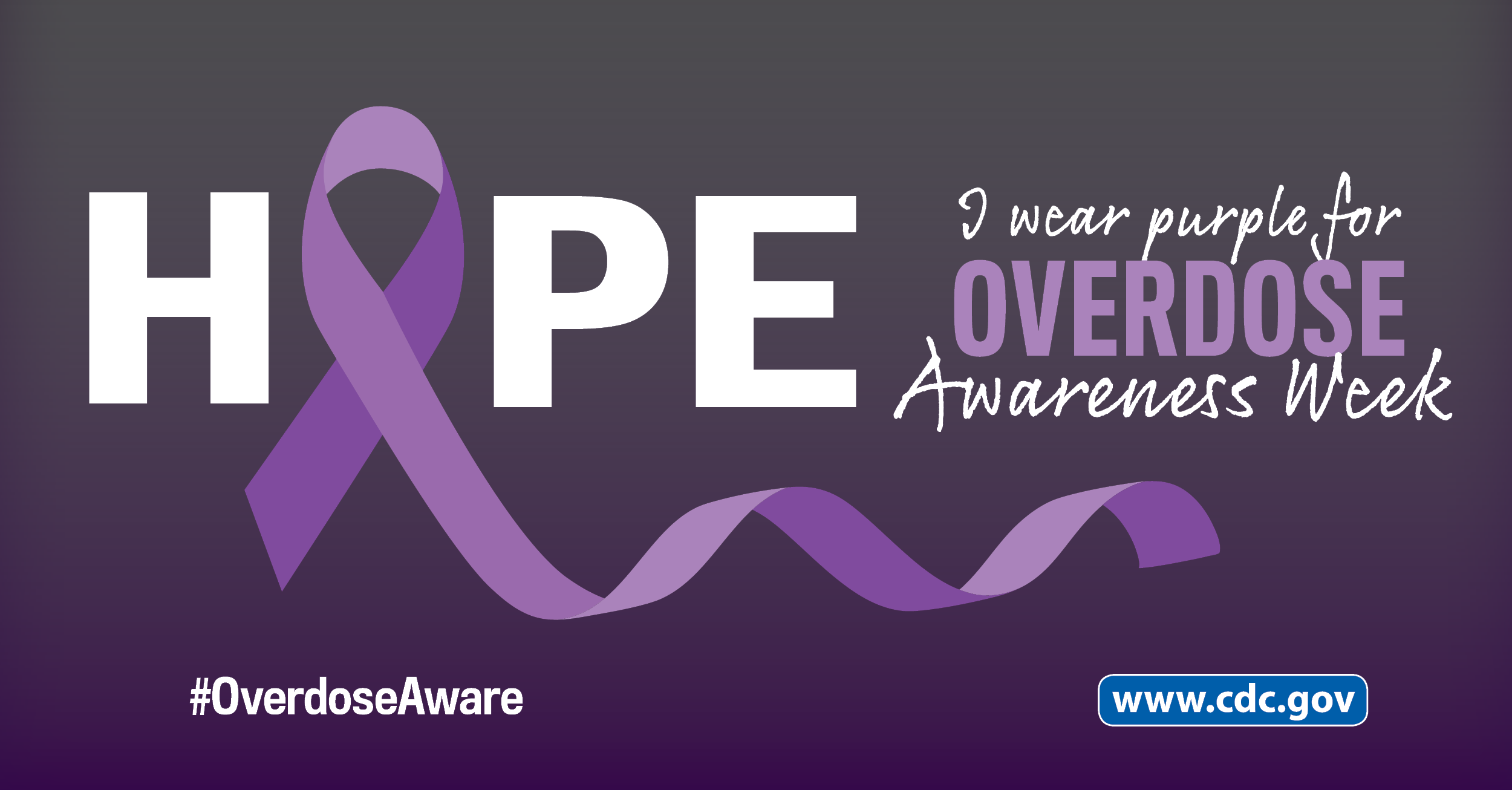Overdose Awareness Week Partner Toolkit
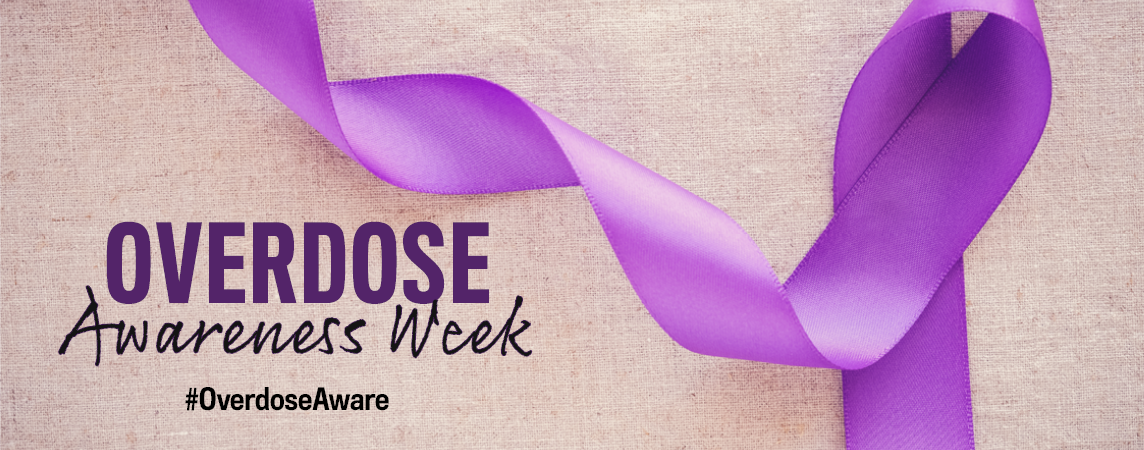
August 28th through September 3rd has been proclaimed as Overdose Awareness Week. It’s a time to raise awareness of drug overdose, strengthen our efforts to prevent overdoses and substance-use related harms and deaths, and enhance our support for individuals with substance use disorders.
- We are working to expand access to high-impact harm reduction interventions like naloxone, the opioid overdose reversal medication.
- We are taking action to reduce barriers to effective treatment and expand access to recovery support systems.
- We are addressing the underlying factors that lead to substance use disorder and addiction.
As part of Overdose Awareness Week, August 31st marks International Overdose Awareness Day (IOAD); a day to remember those we’ve lost to overdose, acknowledge the grief of the family and friends left behind, and renew our commitment to end overdose.
Hashtag: #OverdoseAware #EndOverdose
Partner With Us
Join us as an Overdose Awareness Week partner by using your voice and platforms to spread the messages of ending overdose. This partner toolkit provides free resources, including key messages, social media content, and educational materials, to spread the word about ending overdose. In addition, check out our International Overdose Awareness Day partner toolkit for more resources, social media content and educational materials.
You can inform others of what can be done to end overdose by sharing these resources with your friends, family, and colleagues. Examples of how to get involved include:
- Posting Overdose Awareness Week and IOAD messages and using the hashtags #OverdoseAware, #IOAD2022 #EndOverdose on social media.
- Sharing Overdose Awareness Week and IOAD digital content, web features, and materials online.
- Downloading free educational materials and participating in interactive trainings for patients and healthcare providers.
- Educating communities at risk and healthcare providers at meetings, health fairs, conferences, and other events.
Key Messages
Overdose Awareness Week is a time to remember those tragically lost to overdose and the pain of the families who are left behind. But it is also an opportunity to recommit ourselves to working together to build safe, healthy, and resilient communities. By implementing evidence-based approaches to reducing overdose risks and lowering barriers to treatment and support, we can save more.
The goals of Overdose Awareness Week are:
- To continue our efforts to enhance prevention and harm reduction
- To take action to reduce barriers to treatment and expand access to recovery support services
- To renew our commitment to taking action to end overdose.
- To raise awareness of drug overdose and reduce stigma.
- To promote treatment and celebrate recovery.
- To provide an opportunity to remember and mourn those lost to drug overdose.
- To inform people around the world about the risk of drug overdose.
- To affirm our duty to stop the flow of illicit drugs from reaching our communities.
Recognizing an overdose can be difficult. If you aren’t sure, it is best to treat the situation like an overdose—you could save a life.
- Call 911 immediately.
- Administer naloxone, if it’s available.
- Do not leave the person alone.
- Small, constricted “pinpoint pupils”
- Falling asleep or loss of consciousness
- Slow, weak, or no breathing
- Choking or gurgling sounds
- Limp body
- Cold and/or clammy skin
- Discolored skin (especially in lips and nails)
Lifesaving naloxone
Naloxone can reverse an overdose from opioids, including heroin, illicitly manufactured fentanyl and fentanyl analogs, and prescription opioid medications. Often given as a nasal spray, naloxone is safe and easy to use.
You should carry naloxone if
- You or someone you know is at increased risk for opioid overdose, especially those with opioid use disorder (OUD).
- You or someone you know are taking high-dose opioid medications prescribed by a doctor.
- You or someone you know have both opioid and benzodiazepines prescriptions or use illicit substances like heroin or fentanyl.
Remember: You can’t use naloxone on yourself. Let others know you have it in case you experience an opioid overdose.
What is available for Healthcare Providers?
CDC created a suite of naloxone materials and tools to support your efforts to co-prescribe naloxone when indicated. These tools can help clinicians inform patients, families, and/or caregivers about the value of naloxone in a non-stigmatizing manner.
- Factsheets
Include basic information on naloxone for a variety of audiences ranging from patients to clinicians and healthcare executives. - Conversation Starters
Start talking about the role naloxone can have in saving lives. Despite the known benefits of naloxone, discussing it can be a sensitive topic due to the subject of overdose and the stigma associated with its use. - Full Naloxone Training
- Mini modules
- Assessment: Do You Know the Risk Factors for an Opioid Overdose?
- Engaging Patients in a Conversation
- Reducing Stigma Surrounding Naloxone
- Interactive patient cases
- Practice strategies for effectively engaging patients and their family, friends, and caregivers in a conversation about naloxone and helping eliminate the stigma associated with its use.
- Mini modules
Use our suggested social media posts to help spread the word. Schedule content to remind your networks about Overdose Awareness Week. Use #OverdoseAware and #EndOverdose to join the conversation and tag us at @CDCInjury on Twitter!
Social Media Posts
Millions of Americans are living with #OpioidUseDisorder (OUD) related to prescription and synthetic opioids. This disease can affect anyone – regardless of race, gender, income level, or social class.
Learn more about #OUD and ways to prevent and treat it: https://go.usa.gov/xhTGn
#OverdoseAware
Post 1:
This week is Overdose Awareness Week, visit CDC’s website to learn more about the signs of #overdose and life-saving medications, like naloxone.
#Naloxone can reverse an overdose in minutes and save a life: https://go.usa.gov/xhDbg
#OverdoseAware
Post 2:
As we recognize Overdose Awareness Week, visit @CDCgov’s site to learn, a life-saving medication #naloxone that can reverse an overdose in minutes and save a life.
Carry naloxone if you or someone you know is at risk for an overdose and learn the signs of an #overdose: https://go.usa.gov/xhDDy
#OverdoseAware
Overdose Awareness Week is a good time to check out @CDCgov’s resources. released a technical package that offers guidance for #HCPs working to increase access to medications for opioid use disorder (#MOUD).
Together, we can help #EndOverdose: https://go.usa.gov/xSSNs
#OverdoseAware
This week is Overdose Awareness Week. #Overdose deaths are preventable.
See how @CDCInjury is working to help prevent overdoses and substance use-related harms with the following evidence-based strategies: https://go.usa.gov/xhDTZ
#EndOverdose
As we recognize Overdose Awareness Week, visit @CDCgov’s site to learn, a life-saving medication #naloxone that can reverse an overdose in minutes and save a life.
Carry naloxone if you or someone you know is at risk for an overdose and learn the signs of an #overdose: https://go.usa.gov/xhDDy
#OverdoseAware
